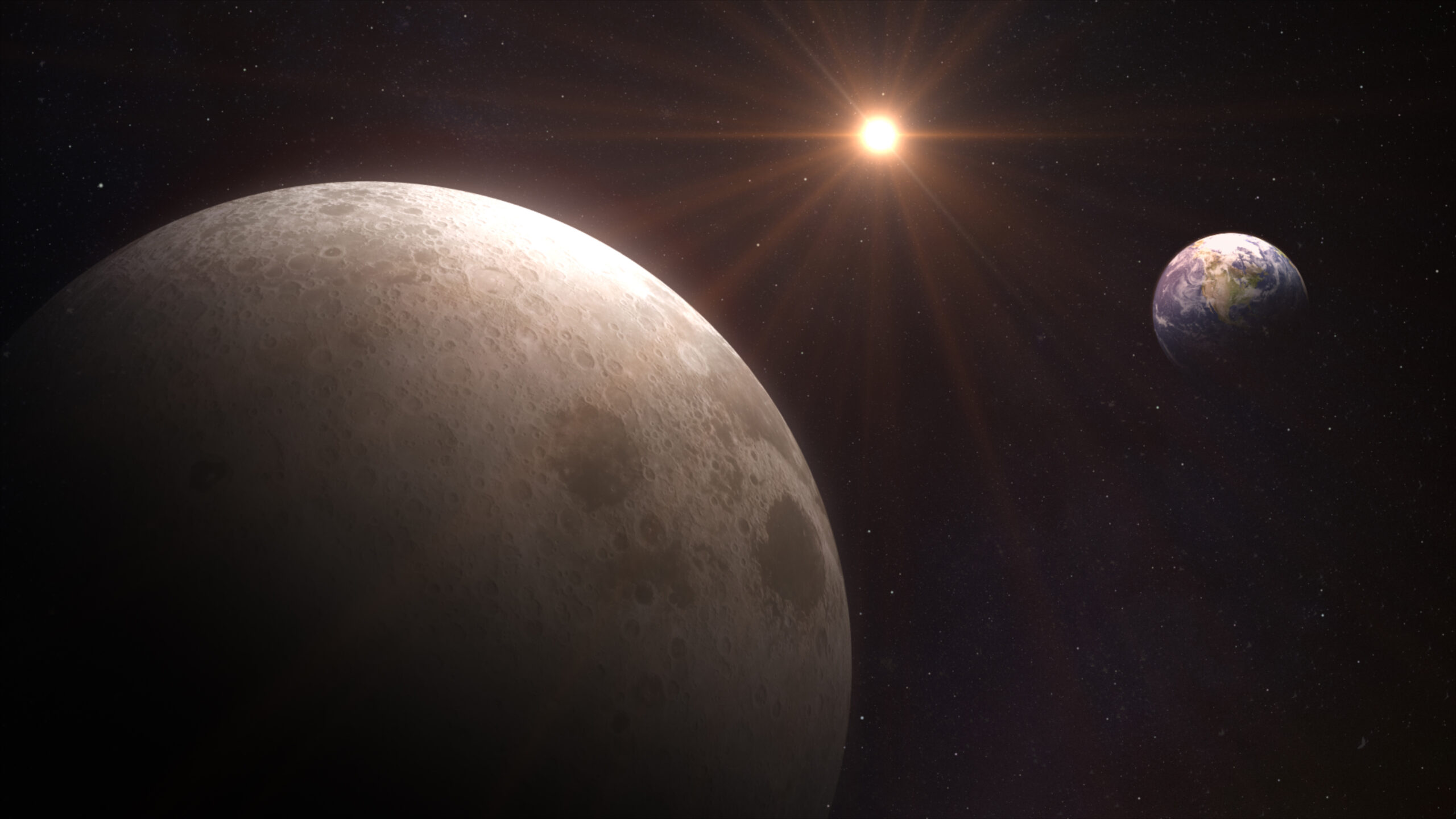 An audience member wears a UFO pin during a House Oversight and Accountability subcommittee hearing on UFOs, Wednesday, July 26, 2023, on Capitol Hill in Washington. (AP Photo/Nathan Howard)
An audience member wears a UFO pin during a House Oversight and Accountability subcommittee hearing on UFOs, Wednesday, July 26, 2023, on Capitol Hill in Washington. (AP Photo/Nathan Howard)UFOs invaded headlines worldwide in 2023.
The subject was suddenly everywhere after a high-altitude Chinese balloon and three unidentified objects(opens in a new tab) were shot down over North America in February. NASA and the Pentagon then released separate reports in September(opens in a new tab) and October(opens in a new tab) on what they call “unidentified anomalous phenomena,” or “UAP” for short.
Perhaps the most incredible 2023 development came during a televised U.S. congressional hearing in July(opens in a new tab), when a former intelligence officer alleged under oath that his country is involved in a multi-decade crash-retrieval and reverse-engineering program(opens in a new tab) involving “non-human” technology; claims the Pentagon casts doubt on.
If 2023 is any indication, 2024 could be another stellar year for this enigmatic issue, which CTVNews.ca has been investigating since 2022(opens in a new tab). Here’s what we expect to learn:
OFFICIAL CANADIAN UAP REPORT SCHEDULED FOR 2024
Back in March, CTVNews.ca revealed(opens in a new tab) the existence of the first known official Canadian UAP study in nearly 30 years. Named the Sky Canada Project, the initiative from the Office of the Chief Science Advisor of Canada now has its own webpage(opens in a new tab) that promises a final public report in 2024.
“The Sky Canada Project was launched in the Fall of 2022 to study how Unidentified Aerial Phenomena (UAP) reports from the public are managed in Canada and to recommend improvements,” the webpage explains. “The project is part of the (Office of the Chief Science Advisor of Canada)’s ongoing effort to curb disinformation and prevent conspiracy theories by seeking to make collected information accessible to all.”
The arm’s length scientific advisory office reports directly to the prime minister and minister of innovation, science and industry. A CTVNews.ca investigation previously showed how UAP reports are handled by the Royal Canadian Air Force, Transport Canada and others(opens in a new tab). While the Sky Canada Project aims to improve how Canadian UAP reports are collected and analyzed, it is not investigating cases.
“It should be noted that the Sky Canada Project is not intended to access and collect first-hand data,” the webpage states. “Furthermore, it is not meant to prove or disprove the existence of extraterrestrial life or extraterrestrial visitors.”
NEW PENTAGON UAP DIRECTOR AND ANOTHER U.S. REPORT EXPECTED
The Pentagon’s current UAP research effort is known as the All-domain Anomaly Resolution Office, or AARO for short. AARO will have a new director in 2024 following the December retirement of intelligence officer and physicist Sean Kirkpatrick(opens in a new tab). CTVNews.ca previously reported that Kirkpatrick met with Five Eyes allies like Canada in May(opens in a new tab) to share UAP information.
AARO also contributes to an annual UAP report produced in coordination with the U.S. Department of Defence and the U.S. Office of the Director of National Intelligence, which have been required to submit these to Congress since 2021. Although they are short on answers, unclassified versions from previous years are available online(opens in a new tab).
“AARO’s analytic efforts are confirming that only a very small percentage of UAP reports display interesting signatures, such as high-speed travel and unknown morphologies,” the most recent report explained(opens in a new tab). “For the few objects that do demonstrate characteristics of interest, AARO is approaching these cases with objectivity and analytic rigor.”
In a statement to CTVNews.ca, U.S. Department of Defense spokesperson Sue Gough confirmed that the next annual UAP report is due in June 2024.
“Per the National Defense Authorization Act for Fiscal Year 2023, the Secretary of Defense and the Director of National Intelligence will be jointly submitting an annual report on UAP to Congress in 2024,” Gough said by email. “To date, the All-domain Anomaly Resolution Office has not discovered any verifiable information to substantiate claims that any programs regarding the possession or reverse-engineering of extraterrestrial materials have existed in the past or exist currently.”
A NASA spokesperson told CTVNews.ca that the agency currently has no plans for an additional UAP report.
“NASA is currently evaluating and assessing the UAP independent study team’s findings and recommendations outlined in their report and will provide updates when we have information to share,” they said by email. “The UAP independent study team members fulfilled their duties to NASA and the team is inactive as of October 2023.”
U.S. lawmakers may also continue efforts to force government disclosure and transparency through legislation. In late 2023, a bipartisan Senate initiative led by Republican Mike Rounds and Democrat Chuck Schumer(opens in a new tab) to create an independent review board for declassifying UAP material ultimately failed, with Schumer blaming House Republicans(opens in a new tab) for cutting the measure from the 2024 National Defence Authorization Act.
“The United States government has gathered a great deal of information about UAPs over many decades but has refused to share it with the American people. That is wrong and additionally breeds mistrust,” Schumer told fellow lawmakers on Dec. 1(opens in a new tab)3. “It is really an outrage the House didn’t work with us on adopting our proposal for a review board… Now it means that declassification of UAP records will be largely up to the same entities that have blocked and obfuscated their disclosure for decades.”
MORE SCIENTIFIC STUDY AND OFFICIAL ATTENTION
While UAP cases could represent anything from drones to balloons, satellites, weather phenomena, advanced technology, or even something more extraordinary, experts agree that additional data and analysis is needed to come to conclusions.
“The stigma of being a UFO/UAP witness has been reduced considerably, and I see more people coming forward with their stories,” Canadian UAP researcher and science writer Chris Rutkowski told CTVNews.ca from Winnipeg. “The advantage of the reduced stigma means that more scientists will publish peer-reviewed studies on the subject, easing it towards acceptability by mainstream science. This bodes well for getting to the bottom of what is being observed.”
Robert Powell is a Texas-based engineer and founding board member of the Scientific Coalition for UAP Studies(opens in a new tab), an international think-tank dedicated to applying scientific principles to UAP research. Powell says a younger, more open-minded generation is fuelling new studies.
“I think that 2024 will bring more whistleblowers but the willingness of Congress to push the issue is less clear,” Powell told CTVNews.ca “Meanwhile, I think the scientific study of UAP will continue to improve with more papers being published.”
With more attention, 2024 could also add more to the conversation through new government hearings, academic conferences, independent investigations and more. Rutkowski, who collects citizen reports from across the country for the annual Canadian UFO Survey(opens in a new tab), still expects the number of new sightings to remain stable.
“In 2024 I believe public interest in the subject of UAP and UFOs will remain high, driven by pop culture influencers on social media,” Rutkowski said. “Despite this, I suspect the number of reports filed in 2024 will be roughly the same as in 2023.”





